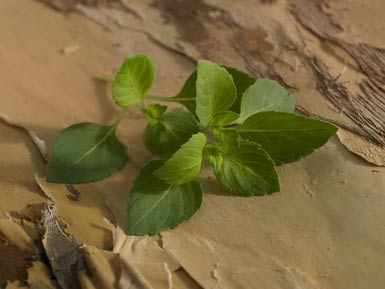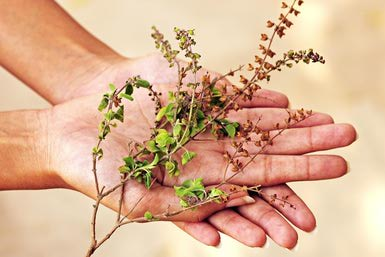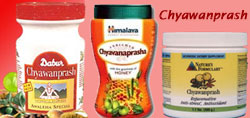How Do You Define Ayurveda?:
Ayurveda can be defined as a system, which uses the inherent principles of nature, to help maintain health in a person by keeping the individual's body, mind and spirit in perfect equilibrium with nature.
What is the Meaning of Ayurveda?:
Ayurveda is a Sanskrit term, made up of the words "ayus" and "veda." "Ayus" means life and "Veda" means knowledge or science. The term "ayurveda" thus means 'the knowledge of life' or 'the science of life'. According to the ancient Ayurvedic scholar Charaka, "ayu" comprises the mind, body, senses and the soul.
What is the Origin of Ayurveda?:
Widely regarded as the oldest form of healthcare in the world, Ayurveda is an intricate medical system that originated in India thousands of years ago. The fundamentals of Ayurveda can be found in Hindu scriptures called the Vedas — the ancient Indian books of wisdom. The Rig Veda, which was written over 6,000 years ago, contains a series of prescriptions that can help humans overcome various ailments.
What are the Basic Principles of Ayurveda?:
Ayurveda is based on the premise that the universe is made up of five elements: air, fire, water, earth and ether. These elements are represented in humans by three "doshas", or energies: Vata, Pitta and Kapha. When any of the doshas accumulate in the body beyond the desirable limit, the body loses its balance. Every individual has a distinct balance, and our health and well-being depend on getting a right balance of the three doshas ("tridoshas"). Ayurveda suggests specific lifestyle and nutritional guidelines to help individuals reduce the excess dosha.

ns. Dark or Shyama tulsi and light or Rama tulsi are the two main varieties of basil, the former possessing greater medicinal value. Of the many varieties, the Krishna or Shyama tulsi is commonly used for worship.
Tulsi As A Deity:
The presence of tulsi plant symbolizes the religious bent of a Hindu family. A Hindu household is considered incomplete if it doesn't have a tulsi plant in the courtyard. Many families have the tulsi planted in a specially built structure, which has images of deities installed on all four sides, and an alcove for a small earthen oil lamp. Some households can even have up to a dozen tulsi plants on the verandah or in the garden forming a "tulsi-van" or "tulsivrindavan" - a miniature basil forest.

Visage/Stockbyte/Getty Images
The tulsi or holy basil is an important symbol in the Hindu religious tradition and is worshiped in the morning and evening by Hindus at large. The holy basil is also a herbal remedy for a lot of common ailments. Here're top fifteen medicinal uses of tulsi.
1. Healing Power: The tulsi plant has many medicinal properties. The leaves are a nerve tonic and also sharpen memory. They promote the removal of the catarrhal matter and phlegm from the bronchial tube. The leaves strengthen the stomach and induce copious perspiration. The seed of the plant are mucilaginous
2. Fever & Common Cold: The leaves of basil are specific for many fevers. During the rainy season, when malaria and dengue fever are widely prevalent, tender leaves, boiled with tea, act as preventive against theses diseases. In case of acute fevers, a decoction of the leaves boiled with powdered cardamom in half a liter of water and mixed with sugar and milk brings down the temperature. The juice of tulsi leaves can be used to bring down fever. Extract of tulsi leaves in fresh water should be given every 2 to 3 hours. In between one can keep giving sips of cold water. In children, it is every effective in bringing down the temperature.

Various Popular Brands of Chyawanprash.
Chyawanprash is a comprehensive herbal tonic with multiple health benefits, prepared according to an ancient Ayurvedic formula. Used by people around the world today, and especially in India, it is a proven energizer, immunity booster and pre-emptive tonic.
Other Benefits
The holistic traditional formula of chyawanprash improves skin complexion, glow and fights dermal bacterial infection. It promotes hair growth and helps absorption of calcium resulting in strong bones and teeth. It is especially good for alleviating cough and asthma. The anti-oxidant properties of the tonic act against the ageing process and maintain youthfulness. Chyawanprash enhances fertility, keeps menstruation regular and helps to overcome difficulties in conception. It also improves muscle tone by enhancing protein synthesis effectively.
The age-old Chyawanprash is regarded as an all-embracing herbal health tonic by one and all, and has become an indispensable part of a healthy family